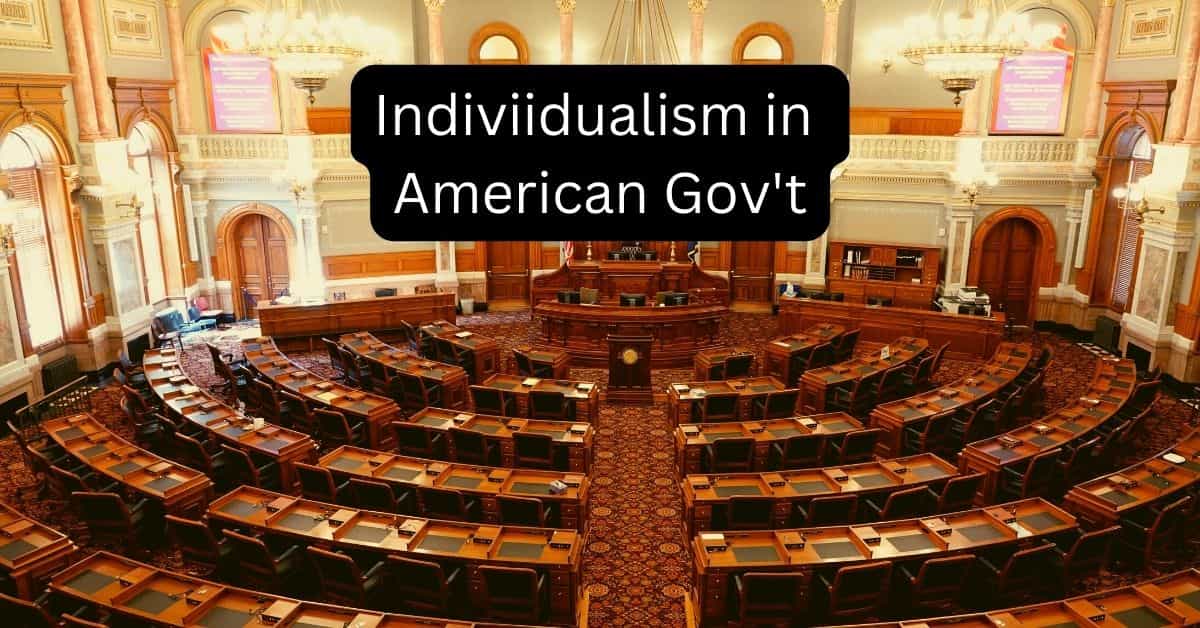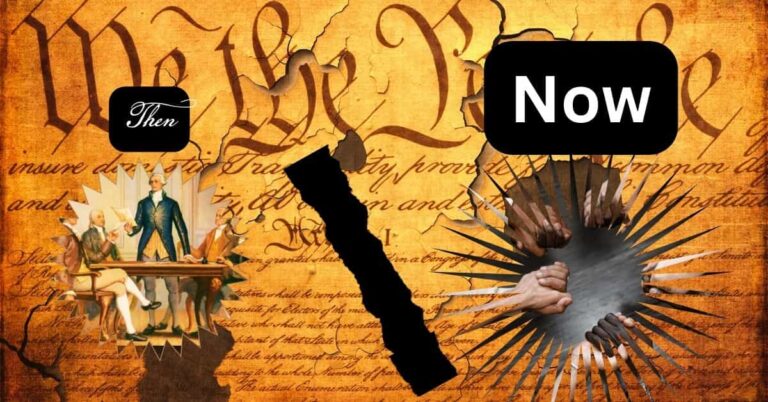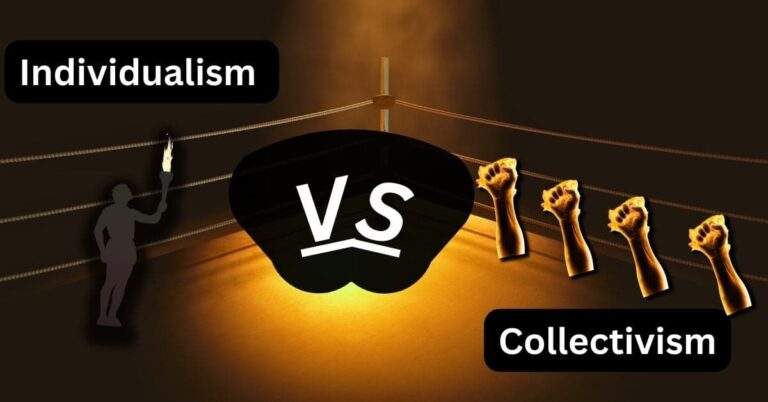Hearing the cling-clang of the voting machine as you pull the lever is comforting. You made your views known. That’s the joy of living in a liberal democracy where individualism is king.
“Political individualism” describes the supremacy of the individual in government. Others call it “liberalism” -or liberal democracy-, but language changes with time. Liberalism meant property rights and other guaranteed freedoms. Now, left-wingers are liberals and right-wingers are conservatives.
I’ve been studying different political philosophies. And I wanted to help bring back the language of liberalism. Collectivism has nothing to do with liberalism until the last century. Let’s take back the language…
Individualism in Political Culture
I will describe the basic operation of American politics for you.
Our 2 main political parties are:
- Republicans
- Democrats
- Honorable mentions: Libertarians and Green Party
Our Founding Fathers established individualism as the fundamental philosophy of the U.S.
And our founding documents resonate with this idea.
Yet, I find myself confused when I hear “liberals” talk. Founding Fathers saw liberals as advocates for:
- maximum liberty
- limited government
- self-determination
Is that the case today? No…
Liberals control the media and terminology. They are akin to collectivists wanting more government. More government equals less individualism.
What happens with less independence and freedom?
- More state dependency
- Unrestricted budgets
- Political polarization
- Extreme special interest requests
Political culture shapes these issues. Without individualism, we are in trouble.
States lacking freedom have more social alienation such as homelessness. They’re also less fun to be with all their added problems.
To obtain insight on issues, Federalism provides great case studies of separate states. Federalism divides government power into federal, state, and local establishments.
Now, let’s pick on California. They are the premier state leading the “liberal” agenda.
They are the most populated state with some hideous anti-freedom and anti-individualist policies.
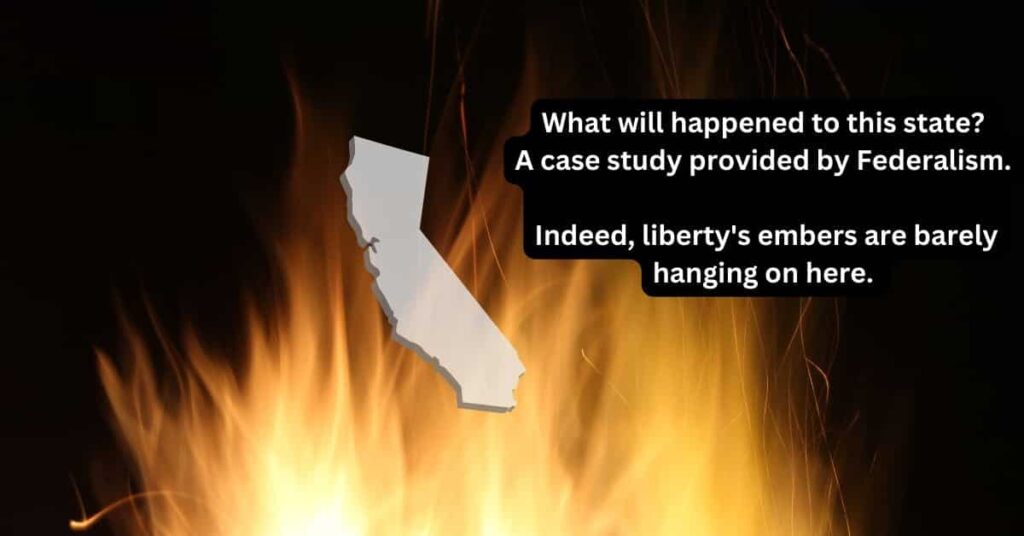
Here are some quick statistics:
- Highest Income Tax Rate: 13.3%
- Cost of Living: 41% higher than the national average
- Homelessness: 30% of the nation’s homeless population
Their government policies dictate and influence these numbers. They’re anti-capitalists and anti-free-market bureaucrats.
But we know people move there for the beautiful landscape-not their dreadful policies.
I want to live in a political culture that promotes liberty and low taxes.
Federalism is a vital part of U.S. government and protecting the individual from mobs. LEARN MORE about Federalism and how the Constitution guards against tyranny.
Individuals and the State
In individualism, we have 2 main goals in politics:
- self-reliance
- limited government
Self-Reliance for You
If you want to live a fulfilled life, self-reliance is crucial.
We grow up as kids longing to be an adult. You’re dependent on your parents. They tell you what to do and when to go to bed. Parts of childhood are fun but not all. I do like the freedoms I enjoy as an adult.
Applying this same mentality to politics results in a parent/child relationship. You must ask permission for basic necessities. The government acts as this benevolent God when you humbly request help.
And worst of all, it creates cycles of dependency you will not escape.
Let me repeat myself. You will stay in the cycle forever unless self-reliance is a guiding light toward freedom.
I know you fall on hard times and depend on this social safety net. But the problem arises when you are stuck in the cycle of poverty.
Please escape this phase and start developing self-reliance.
Limited Government Based on Reason
What does a world look like without a limited government?
Imagine a nice pretty field decimated by an artillery barrage. The field once green and luscious is now barren and void of any color.
Unlimited government is the artillery aimed at you and never stops. The desolate field is the result of unlimited control. In essence, it is a cause-and-effect relationship.
- Cause: Shell represents unlimited authority pointed at you
- Effect: A growth of emptiness followed by a never-ending landscape of waste
Our Founders wanted a world without tyranny. Unlimited authority grows into uncurable viruses.
Thus, the Bill of Rights is the best example of a limited government. Our rights are restrictions on the state.
Examples of Individual Government Policies
We will examine government policies where individualism needs prominence.
Protects Civil Liberties
Individualism in government protects our civil liberties. They aren’t treated like commodities like gold or oil.
I don’t want my rights treated as natural resources. They are the most important part of civil government.
Without them, you’re locked in a prisoner ship like many revolutionaries of 1776. That’s what the British did. Our former ally grants themselves the authority to imprison you without habeas corpus.
Individualism provides a face for those rights. And your smile humanizes those protections.
Give government a big smirk and maintain your civil rights.
Minimal government Interference in economy
When the government blows money, it alters your bottom line. You’re required to spend less than you make every month to avoid high credit card interest rates of over 20%.
Our overseers should abide by the same logic.
Famous free-market economists advocate for less government spending. Here are some to name a few:
- Ludwig Von Mises
- Milton Friedman
- Thomas Sowell
We need policies sponsoring individual consumer choices. For example, putting price controls on items such as rent will never cure soaring costs. This is anti-freedom and anti-individual.
Encouraging landlords to invest in new development cures the problem.
In the end, mass government involvement destroys your choice of goods and services.
Ideology Articles:
- Capitalism is crucial to a free society. LEARN MORE about the relationship between capitalism and individualism.
- Individualism vs collectivism is the battle of today’s time. LEARN MORE as I describe basics of economics, politics, and family dynamics.
Protect Private Property Rights
You receive comfort knowing your castle is there waiting for you after a hard day’s work. It’s your secluded oasis away from the hardships outside the door.
I described your private property. You take it for granted.
Without individual private property rights, you have no castle.
You can’t paint your walls weird colors or install new fixtures. In other words, you can’t alter property you don’t own.
Who does your castle belong to?
“Ole daddy government” possesses it. The autonomy you lose not securing private property rights spells disaster.
For instance, you’re able to tell the cops no if they want to search your place without a warrant. Informing developers your land is not for sale is an added benefit.
Ownership boils down to respect for others’ possessions and ideas. You need them for your privacy and security.
Different Political Systems and the Individual
We will compare 2 different political systems. Great Britain has a history dedicated to the individual. India focuses on group conformity based on a caste system.
Great Britain-The Beginning of individual Choice
The Founding Fathers examined the British political system when formulating ours. They learned what to include and exclude.
Great Britain operates on a constitutional monarchy. This means an unelected king/queen possesses power.
One quick note. I will not take the time to explain how the entire British political system works. I included a video below to give you insight.
Furthermore, the British system limits the monarchy’s dominance. But having people in power without a proper election channel underscores the individual.
Do younger more individualized British citizens like this system?
The British public debates whether to abolish or keep it. Eliminating this institution is the ultimate form of individualism. Rights started with the Magna Carta in 1215. And the British political system continues to make improvements for individual choice.
Since I’m an American looking in, I won’t give my opinion on eliminating or keeping the monarchy. I will include British public opinion on the matter.
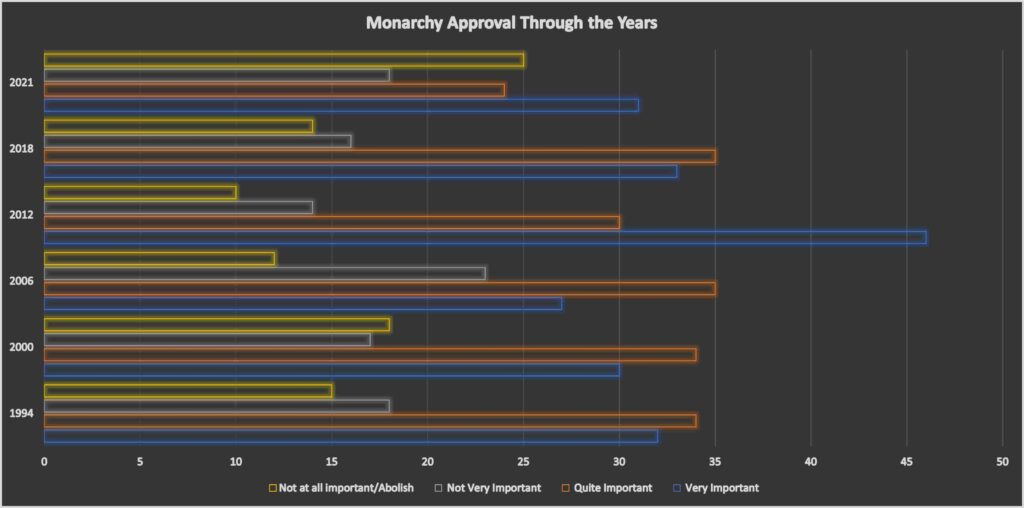
Source: PBS
India- Opposition to the Individual
India is famous for its caste system. These are social forms of organization decided at birth.
Groups ranged from low income to high income with the lowest called the Dalit. Some castes became further divided into 25,000 sub-castes. As always, the higher caste levels yielded more political power.
Discrimination and violence resulted among the castes. India has a high poverty rate and good jobs are difficult to find. Higher authority castes showed favoritism by not striving for equality before the law.
As India developed, caste injustices disappeared. The Indian Constitution banned discrimination in 1949.
And you see that individualism is not a prominent ideology in India.
Thus, a political system built on collectivism allows ideas forced upon you:
- Marriage partners
- Jobs
- Restrictions on upward mobility
Conclusion
A political system without individualism is trying to start a lawnmower without gas. You need the individual fuel molecules to keep the engines of the lawn mower and the world running.
Liberalism meant freedom and liberty in a former life. But now it means advocates of government control and socialism.
Political cultures without individualism will look like California’s dopey state government. It’s a special place where politicians run wild.
Self-reliance and limited government represent true political freedom.
We touched on the political systems of Great Britain and India. Great Britain has a longer history of political individualism than India.
In the end, government and the individual are 2 opposing parties. They struggle to define each other’s rules of engagement.
Are you in favor of more or less individualism in government?
J. Liberty
References:
Tyler, A. L. (2015). Habeas Corpus and the American Revolution. California Law Review, 635-698.
